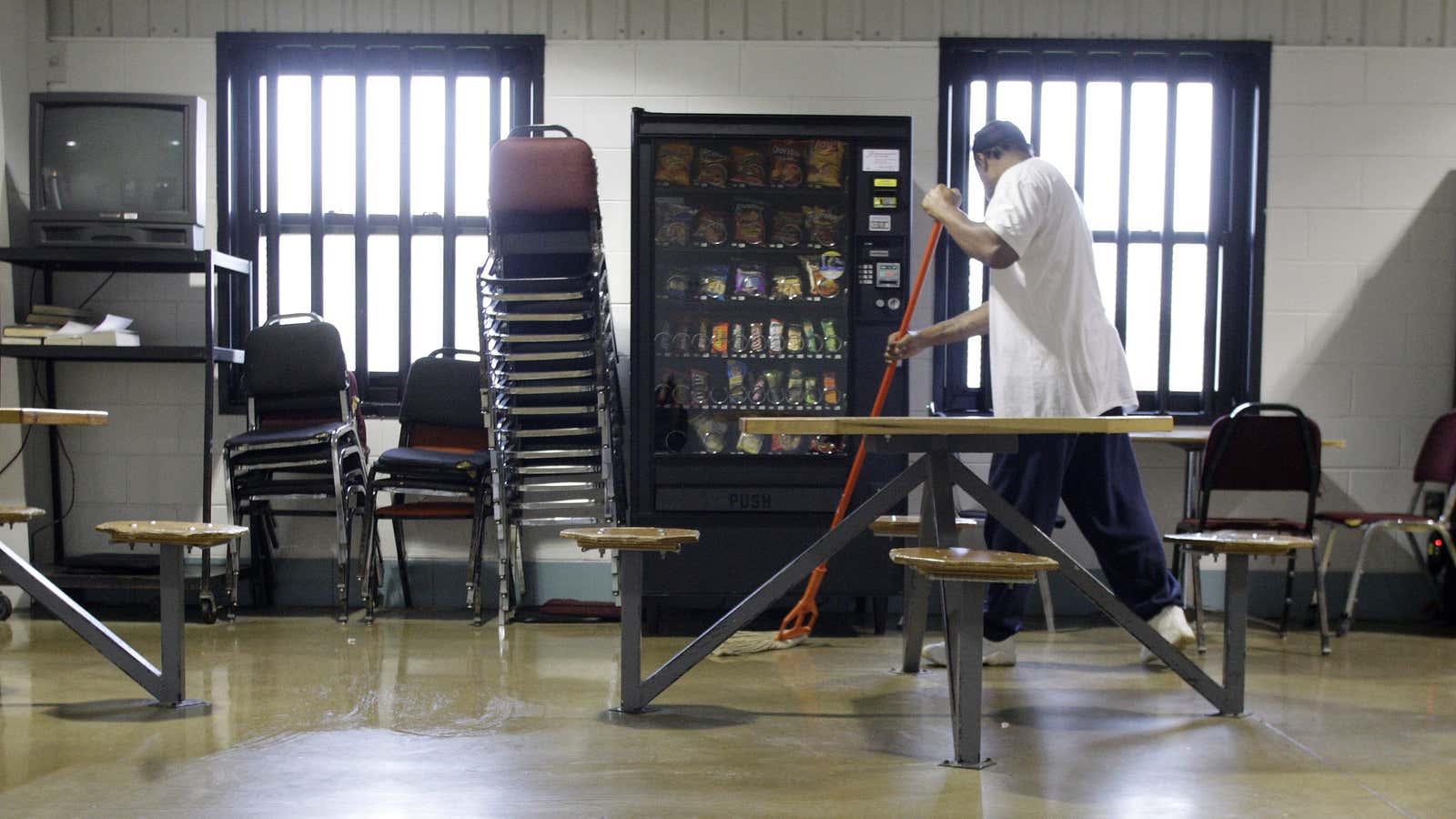The Department of Justice will be moving to end the use of private federal prisons in the United States, according to a memo by deputy attorney general Sally Yates.
“They simply do not provide the same level of correctional services, programs, and resources; they do not save substantially on costs; and as noted in a recent report by the Department’s Office of Inspector General, they do not maintain the same level of safety and security,” Yates wrote, according to the Washington Post, which first reported the story.
The 13 prisons won’t be shut down immediately. Yates told prison officials to either “substantially reduce” the scope of contracts when they expire, or decline to renew them altogether—and this will happen over the next five years.
In December 2015, private federal prisons housed 12% of the total Bureau of Prisons (BOP) population, or 22,660 inmates. (That’s only a fraction of the national total held in private facilities; in state and federal prisons combined, in 2010, there were 128,000 inmates, and the trend has been on the rise.) The BOP started using privately-run facilities in the late 1990s to accommodate the mass incarceration boom. At its peak, they housed 30,000 inmates, but reforms in recent years have brought down the prison population, giving the government a chance to re-think their use, according to the Post.
The report (pdf) Yates mentioned, released last week, outlined how poorly private facilities compare to those run by the BOP. In six of the eight categories of safety and security incidents, private prisons performed worse than public-run ones. “For example, the contract prisons confiscated eight times as many contraband cell phones annually on average as the BOP institutions. Contract prisons also had higher rates of assaults, both by inmates on other inmates and by inmates on staff,” the report reads.
Yates told the Post that the Justice Department and the BOP had been talking about the issue for months. Advocates and media have been pointing to the problems in the private prison industry for years, most recently in a massive exposé in Mother Jones, whose reporter, Shane Bauer, went undercover to work as a guard for four months. The overcrowding and lack of resources in private prisons was even highlighted in the popular Netflix TV show Orange is The New Black.
Shares in Corrections Corporation of America and the GEO Group, America’s largest private prison operators, were halted on the news, and then reopened. Both fell more than 40%.




